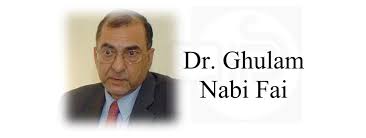 India’s election commission has announced that polls to elect the legislative assembly in Jammu and Kashmir will be held in three phases on Sept 18, 25 and Oct 1.
India’s election commission has announced that polls to elect the legislative assembly in Jammu and Kashmir will be held in three phases on Sept 18, 25 and Oct 1.
The Indian government is obliged to hold these by Sept 30 to comply with the supreme court verdict of December 2023, which had upheld Delhi’s 2019 abrogation of Article 370 of the constitution as “legal and constitutional”. The last assembly elections took place 10 years ago. After the assembly was dissolved in 2018 the state has been under direct rule by Delhi. In August 2019, Prime Minister Narendra Modi’s government wrote another grim chapter in J&K’s tragic history by illegally annexing the state, bifurcating and absorbing it into the Indian union. This was in defiance of UN Security Council Resolutions that prohibit any material change in the state, which is recognised as an international dispute.
Since 2019, the Modi government has carried out far-reaching changes — administrative, electoral, demographic and in domicile rules — to pave the way for elections with the aim of consolidating its 2019 action and claiming this has been ‘accepted’ by the people of J&K with ‘normalcy’ returning there. In fact, last month, before announcement of the election schedule, the government substantially increased the powers of the lieutenant-governor (LG), who is nominated by Delhi, to sharply limit the authority of the next ‘elected’ government. The Modi government has opted to maintain central control knowing that BJP or its proxies cannot win the election and being unwilling to cede authority to anyone else. The LG was given sweeping administrative and security powers — over the police, transfer and postings of civil servants, sanction for prosecution and other public order issues. His decisions will not be subject to review by the Council of Ministers, with his nominees authorised to attend cabinet meetings.
This provoked an uproar in J&K and was denounced by the national opposition as another move to disempower the people there. It was sharply criticised by both pro-India Kashmiri parties, National Conference and People’s Democratic Party. Former chief minister Mehbooba Mufti described it as reducing J&K to a municipality while Omar Abdullah said the chief minister’s office had been downgraded to “a powerless rubber stamp”. Congress condemned it as the “murder of democracy”. It was also critiqued in its latest report by the ‘Forum for Human Rights in Jammu and Kashmir,’ an independent organisation comprising concerned Indian citizens.
This however was only the latest attempt to disempower the people of occupied J&K. Two key post-2019 actions aimed to reshape the electoral map and alter the state of play to the detriment of the Kashmiri people. In 2020 India’s Delimitation Commission carved out new electoral constituencies with Jammu given six more seats in the 90-member J&K Assembly while Kashmir was given only one more, even though Kashmir’s population far exceeds that of Jammu. This gerrymandering was designed to give Jammu greater representation to reduce the political weight of Muslims in the assembly and shift the balance to Hindus.
Demographic changes through new domicile laws also sought to disenfranchise Kashmiris. After abrogation of Articles 370 and 35A of the Indian constitution, non-Kashmiri outsiders became eligible to domicile status and to enlist as voters. An indeterminate number of domicile certificates were issued over the past five years. In July 2022 even temporary residents were given voting rights. Again, this was decried in J&K as a brazen effort to change its demography.
Against the backdrop of such manipulative moves and gerrymandering what can be expected in the upcoming election albeit to a toothless assembly? What will the poll mean for the BJP government’s ‘consolidation’ aims? It is widely predicted that Omar Abdullah’s National Conference will emerge as the lead party in the election. In its election manifesto the party has pledged to fight for the restoration of Article 370, which gave J&K special status, repeal all post-2019 laws that eroded Kashmir’s autonomy and work for India-Pakistan dialogue. Abdullah also made it clear that NC’s first order of business would be for the assembly to adopt a resolution calling for restoration of statehood and rejecting Delhi’s decision to strip J&K of its special status. If this happens it will hardly advance the BJP’s agenda in the territory. In fact, a tussle between the ‘elected’ government and the LG will be inevitable, which far from establishing ‘stability’ will plunge the region into renewed political turmoil.
Then there is the engineer Rasheed factor and how it plays out in the election. Abdul Rasheed Sheikh won in the Lok Sabha elections from Baramulla. A fierce opponent of abrogation, he won from jail defeating former chief minister Omar Abdullah. Being incarcerated since 2017 on terrorism funding charges he has emerged as a symbol of defiance of Delhi. His election campaign made waves across the Valley and drew support across the board especially from youth. His victory reflected the depth of Kashmiri anger with Delhi in what was widely seen in the Valley as a vote against India. The question then is whether his Awami Ittehad Party can build on that momentum and make a significant impact in the assembly poll.
Arguably the most important factor will be whether people express their anger with Delhi and rejection of occupation through a protest vote. Over the decades elections in J&K have been seen by Kashmiris as a meaningless and illegitimate exercise under Indian occupation. This has been reflected in the abysmally low public participation especially in view of boycott calls by genuine Kashmiri leaders, denuding the polls of any legitimacy. However, the relatively higher voter participation in the recent Lok Sabha election suggests that casting the vote may become a ‘new’ form of resistance and expression of the Kashmiri aspiration for freedom.
All this indicates that not only is the Modi government unlikely to achieve its aim of securing endorsement of its 2019 action but may confront new challenges from an election which gives a fillip to the popular Kashmiri demand for ‘azadi’. Elections in J&K can never be a substitute for a genuine exercise of self-determination for the Kashmiri people, but the upcoming one may become a vehicle to express their rejection of occupation.
Courtesy: Dawn








